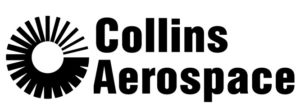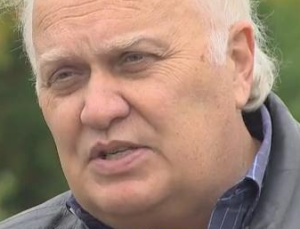Leeham News and Analysis
There's more to real news than a news release.
Collins contract vote keeps 737 landing gear on track
 By Bryan Corliss
By Bryan Corliss
March 11, 2019 (c) Leeham News: Workers at the Collins Aerospace landing gear plant in Everett, WA, have approved their first union contract with the company.
Both sides can come away feeling OK with how they did at the bargaining table. But the biggest winner in these talks actually was Boeing, which now doesn’t have to worry about a break in the flow of 737 landing gear for the next 40 months.
Boeing strikes new pay deal with Machinists
By Bryan Corliss
March 4, 2019, © Leeham News: Boeing and the Machinists Union have come to terms on a deal that will raise wages for the company’s hourly work force and help the company compete for workers in a tight Puget Sound labor market.
The two sides have agreed on a pact that raises new-hire pay by $4 an hour in all job classifications, and raises pay for experienced workers in 32 specific job classifications by as much as $10 an hour.
In all, as many as 16,000 people are getting raises at Boeing, which is about 55% of the IAM-represented work force.
“Not everybody is getting something here, and that’s hard,” said IAM 751 President Jon Holden in an interview with LNA. “But we were using whatever leverage we could to make some improvement.”
In a statement, Boeing said it is “committed to pay that is competitive within the local marketplace.”
Boeing supplier reaches deal with Machinists Union
By Bryan Corliss
February 19, 2019, © Leeham News: Machinists Union members who work at Cadence Aerospace-Giddens in Everett, WA, voted overwhelmingly to approve a new three-year contract with the company.
 Ninety percent of those who voted Monday were in favor of the deal, according to the IAM’s District 751. (IAM 751 typically does not release vote totals in its contract elections, only the percentage voting in favor or against.)
Ninety percent of those who voted Monday were in favor of the deal, according to the IAM’s District 751. (IAM 751 typically does not release vote totals in its contract elections, only the percentage voting in favor or against.)
IAM 751 President Jon Holden called the contract a “positive agreement.” The union’s negotiating committee called the deal “one members can be proud of and can continue to build upon into the future.”
Supplier consolidation leading to unionization at some
By Bryan Corliss
Feb. 12, 2019, © Leeham News: While Boeing is enjoying “labor peace” in its Northwest facilities, a couple of aerospace industry suppliers are in the midst of contract negotiations with the largest union representing aerospace industry workers in the region.
At one of the new Collins Aerospace plants in Everett, those talks are contentious. Workers there staged a one-day walk-out on Jan. 17 after (according to union  officials) Collins representatives refused to bargain with them.
officials) Collins representatives refused to bargain with them.
The workers were back on the job the next day. However, the union representing them – International Association of Machinists District 751–filed a stack of Unfair Labor Practice complaints with the National Labor Relations Board’s Seattle office, accusing the company of, among other things, bad-faith bargaining.
Since the January walk-out, the two sides continued talks with the help of a federal mediator.
“The workers who generate the profits should share in the prosperity we create,” said Joshua Whitcomb, a mechanic at the landing gear shop, in a statement provided by the union. “This is very skilled labor, and not just anyone can perform our work.”
For its part, a Collins spokesperson in Iowa gave LNA a statement saying the company is “committed to continue negotiating with the union in good faith, and hopes to reach a mutually beneficial agreement.”
IAM may be playing with fire in SC union vote
June 20, 2018, © Leeham News: The International Association of Machinists may be playing with fire.
Puget Sound’s IAM 751 may be burned in the process.
 The Charleston Post and Courier reported that the IAM will file a labor grievance over Boeing’s refusal to recognize certification of a “micro-union” while the company appeals the legality of its creation.
The Charleston Post and Courier reported that the IAM will file a labor grievance over Boeing’s refusal to recognize certification of a “micro-union” while the company appeals the legality of its creation.
“Boeing ignores us at their own peril,” the newspaper quotes a union official.
The union may be pursuing this at its own peril.
At stake is where Boeing will assemble the prospective New Midmarket Aircraft, or NMA (aka 797).

The New Midmarket Aircraft site selection will be discussed at the Southeast Aerospace & Defence Conference next week in Mobile (AL). Click here for more information.
Pontifications: Boeing faces thousands of retirements in next five years
March 19, 2018, © Leeham News: Boeing faces thousands of retirements in its engineering and touch-labor force ranks over the next five to 10 years, with a limited worker pool for replacements.
A national economy with a low unemployment rate of about 4.1% exacerbates the challenges of finding talent.
These numbers are important to Boeing’s current higher production rate ambitions.
They are even more important as Boeing looks to develop the New Midrange Airplane (NMA, aka 797).
LNC first discussed the looming shortage of engineers in connection with the potential creation of a new company with Embraer.

The Southeast Aerospace and Defence Conference in Mobile focuses on production transformation. Go to Airfinance Journal for program information.
Long, bitter history precedes union vote at Boeing Charleston today
Feb. 15, 2017, © Leeham Co.: Boeing’s touch-labor workers at its 787 assembly plant in North Charleston (SC) will vote today on whether to become represented by  the International Association of Machinists (IAM).
the International Association of Machinists (IAM).
It’s a vote with huge stakes for both sides.
Boeing vociferously opposes a Yes vote. The IAM, which represented workers on the property when it was owned by Vought before Boeing purchased the plant, was voted out by the workers, by then employed by Boeing, just days ahead of Boeing selecting Charleston for the second 787 assembly line. It is widely believed the vote throwing out the IAM was the capper in Boeing’s decision to locate line 2 in Charleston.
The IAM has been itching ever since to regain representation of the workers here. A previous vote was scrubbed when it became clear, via nose-counting, it would fail.
Pontifications: Boeing’s 8,000 employee reduction isn’t nearly enough
April 4, 2016, © Leeham Co.: Boeing’s plans to reduce head count at Boeing Commercial Airplanes by 8,000 jobs this year dominated the news last week. Comparing employment figures with Airbus Commercial shows this reduction isn’t nearly enough.
BCA has 22% more employees per airplane than Airbus. BCA is a bloated organization. Some of this undoubtedly is inherent to being a 100 year old company, compared with Airbus being less than 50. Airbus is more automated than Boeing as well.
Transition from McNerney to Muilenburg complete
Feb. 22, 2016, (c) Leeham Co.: The transition from the controversial and divisive Jim McNerney to the leadership of Dennis Muilenburg at The Boeing Co. is now complete.
Boeing announced today that McNerney stepped down as chairman and also stepped off the Board of Directors. Muilenburg, who succeeded McNerney as CEO last summer, now also assumes the chairman’s title.
It’s a welcome change.




